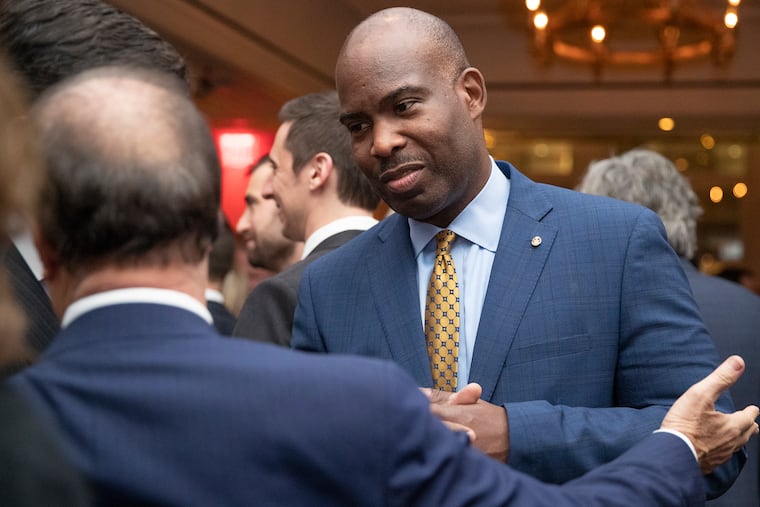Mayor Jim Kenney’s administration prioritizes Philly renters in latest spending plan for federal coronavirus aid
About $7.7 million in federal aid would go to Philadelphia renters struggling to make ends meet under a plan to distribute the latest round of coronavirus relief funding.

About $7.7 million in federal aid would go to Philadelphia renters struggling to make ends meet under a plan by Mayor Jim Kenney’s administration to distribute the latest round of coronavirus relief funding.
The rental assistance is part of an $11.3 million plan for spending the second and final tranche of Community Development Block Grants that were earmarked for Philadelphia in September under the pandemic relief package known as the CARES Act, which Congress approved in March. The city distributed $26.2 million in the first round of grants, including $11.5 million for rental assistance.
The plan for second-round spending, which needs full City Council approval but was green-lighted by council’s Finance Committee on Monday, also allocates $1 million for housing counseling and legal services and about $566,000 for programs helping small businesses weather the pandemic. The block grant program, which is administered by the U.S. Department of Housing and Urban Development, is the federal government’s primary antipoverty funding mechanism.
During the committee hearing Monday, several lawmakers questioned Kenney administration officials about the relative lack of aid for small businesses in the latest package.
“The cost to open a new business is far greater than the cost to support an existing one,” Councilmember Allan Domb said.
Councilmember Derek Green, who chairs the Finance Committee, said the city could be doing more to make the block grant funding go further, such as distributing more of it in loans and less in direct grants. And Councilmember Maria Quiñones-Sánchez said it’s important to keep funding programs that help small businesses with their financial paperwork, which can help ensure they are positioned to apply for and receive aid and loans.
“We need to really ramp up that one-on-one technical assistance with some of those businesses. ... We got really bad accountants who give really bad advice to small businesses,” she said. “I know we’re getting in the weeds on it, but that’s where we have got to go.”
Administration officials said needs are vastly outstripping resources on a range of issues during the pandemic. Rental assistance spending from city’s first round of block grants, for instance, provided aid for only 4,000 households, when 12,000 had applied.
And they noted other funding sources, such as relief money that flows through the state, has provided more aid for small businesses in Philadelphia than for renters.
“Unfortunately, we have such huge demand and need across all areas, and these are tough, tough decisions and so I think that the need is to support all of them is equal,” said Melissa Long, director of the city’s Division of Housing and Community Development. “But I do think the threat of eviction and folks being homeless — that that was a factor.”
The city’s most recent comprehensive tally, from October, showed it had received about $616 million in overall coronavirus relief funding. But that’s not keeping up with demand in the city, which had to close an almost $750 million budget hole last spring due to a steep drop-off in revenue following coronavirus-related business shutdowns and is again falling behind. The city is projected to finish the fiscal year with just $22.9 million in reserves in its $4.8 billion budget, a cushion that provides less than two days of operating expenses and could easily disappear with more bad economic news.
City officials are urging Congress to break its gridlock over passing a new coronavirus relief package as the autumn spike in cases looks likely to result in a winter of even greater economic pain.
“The scale of need is much greater than the resources that we’ve gotten,” said Sarah de Wolf, the city’s deputy finance director.